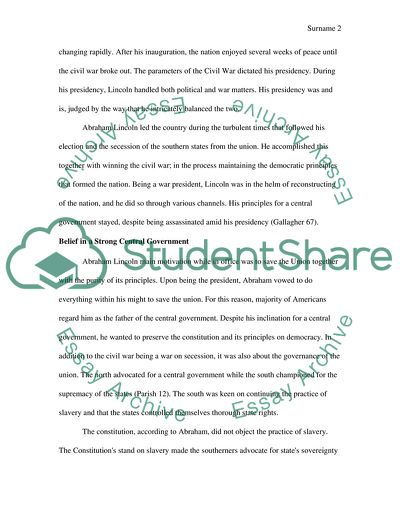Cite this document
(How Lincoln Helped to Change a Mostly Constitutional Government Essay Example | Topics and Well Written Essays - 2250 words, n.d.)
How Lincoln Helped to Change a Mostly Constitutional Government Essay Example | Topics and Well Written Essays - 2250 words. https://studentshare.org/history/1823203-how-lincoln-helped-change-a-mostly-constitutional-government-into-what-we-have-now
How Lincoln Helped to Change a Mostly Constitutional Government Essay Example | Topics and Well Written Essays - 2250 words. https://studentshare.org/history/1823203-how-lincoln-helped-change-a-mostly-constitutional-government-into-what-we-have-now
(How Lincoln Helped to Change a Mostly Constitutional Government Essay Example | Topics and Well Written Essays - 2250 Words)
How Lincoln Helped to Change a Mostly Constitutional Government Essay Example | Topics and Well Written Essays - 2250 Words. https://studentshare.org/history/1823203-how-lincoln-helped-change-a-mostly-constitutional-government-into-what-we-have-now.
How Lincoln Helped to Change a Mostly Constitutional Government Essay Example | Topics and Well Written Essays - 2250 Words. https://studentshare.org/history/1823203-how-lincoln-helped-change-a-mostly-constitutional-government-into-what-we-have-now.
“How Lincoln Helped to Change a Mostly Constitutional Government Essay Example | Topics and Well Written Essays - 2250 Words”. https://studentshare.org/history/1823203-how-lincoln-helped-change-a-mostly-constitutional-government-into-what-we-have-now.


